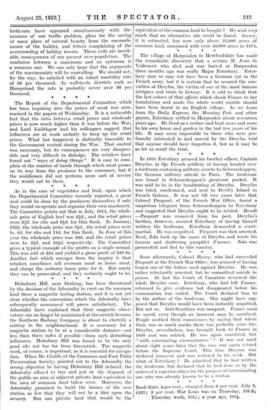Soon afterwards, Colonel Henry, who had succeeded Picquart at the
French War Office, was accused of having forged one of the letters used against Dreyfus. He was rather reluctantly arrested, but he committed suicide in prison. At last the Court of Cassation reviewed the whole Dreyfus case. Esterhazy, who had left France, returned to give evidence but disappeared before his examination was ended. The Court declared him to be the author of the bordercau. One might have sup- posed that Dreyfus would have been instantly acquitted. But not so. Anti-Semitism was rampant. France must be saved, even though an innocent man be sacrificed. People soothed their consciences by saying that where there was so much smoke there was probably some fire. Dreyfus, nevertheless, was brought back to France in 1898 and was retried. He was again convicted, but " with extenuating circumstances " ! It was not until about eight years later that the case was again retried before the Supreme Court. This time Dreyfus was declared innocent and was restored to his rank. But what of Esterhazy ? He admitted that he had written the bordereau, but declared that he had done so by the orders of a superior officer for the purpose of incriminating one who was already known to be a traitor.


































 Previous page
Previous page